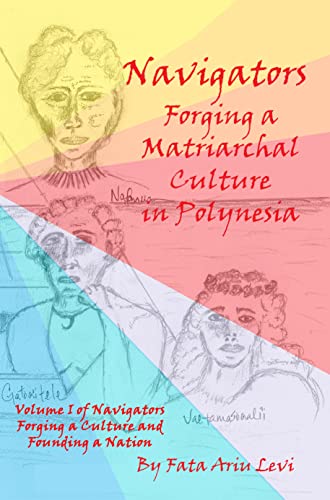In a disclaimer early in NAVIGATORS FORGING A MATRIARCHAL CULTURE IN POLYNESIA, Elder Orator Chief Fata Ariu Levi, a Vietnam veteran, successful banking financial services and information technology entrepreneur, comments that “Samoan and Manu’an history belongs to the people. So, everyone has their own version of it.” Would that all versions of history could be as deep, intelligent, generous and thoughtful as this volume, which touches 3,000 years of Samoan history in this second of his three-volume series.
Levi’s book provides a wealth of knowledge and understanding, offering itself as a priceless resource to interested readers. He relates the stories of critical historical leaders, like LeValasi, Salamasina and the Warrior Queen Nafanua. He helps readers understand the nature of oratorical rituals, meeting protocols the ava (Piper methysticum) ceremony. He carefully explains seating arrangements, organizations, architecture, laws and linguistic protocols. He helps readers understand the Samoan transition to Christianity as well. All the while, Levi effectively implicitly inherently reinforces that a sophisticated culture that has transmitted history orally through Orator Chiefs is an impressive training ground for a writer of history.
The range and depth of Levi’s exploration would make this a book worthy of any library. What amplifies the value of this work further is Levi’s skill as a narrator. This work is profoundly not compartmentalized — a neat trick for a volume of history. Levi, in accessible prose, creates bridge after bridge after bridge, linking personal experience; specific and thoughtfully chosen references to European classic philosophy, history and the era of monarchies that English speakers are trained to believe is their antecedent; and his deep, specific knowledge of Samoan history. Better still, Levi carefully explains, time and again, why things are the way they are.
Elder Orator Chief Fata Ariu Levi’s NAVIGATORS FORGING A MATRIARCHAL CULTURE IN POLYNESIA is a refreshingly careful, profoundly integrative history. For anyone interested in reading great history and for anyone specifically interested in Samoa, this book is a treasure.
~Ellen Graham for IndieReader

